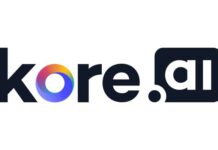In today’s world, the gender gap is still a major concern, even though modernization is being embraced by the world. Men are offered more leadership opportunities than women in the business world, especially in the technology industry, highlighting this gender gap. To emphasize this point, according to Nasscom, women make up 36% of India’s tech workforce, yet their proportion declines significantly as one moves up the corporate pyramid. This is where the crucial role of AI education in bridging the gender gap became evident. In India, where technological innovations are accelerating, attempts to promote the empowerment of women through AI education are gaining support, reshaping the technology sector’s future.
Advancing Women in the Technological Sector
Since technological growth has taken the stage, artificial intelligence (AI) is certainly establishing itself as an essential innovation that is revolutionizing almost every aspect of life. As a result, there is a growing need for qualified individuals in this field as AI pervades more spheres of society. However, on the other hand, the gender disparity in AI is actually more pronounced in India, where the tech sector is booming. According to the World Economic Forum (WEF), women hold just roughly 26% of the jobs in artificial intelligence worldwide. Furthermore, 60% of women surveyed feel dominated by men in leadership roles within their organizations, with ratios of two to one or more, according to Skillsoft’s 2022 women in tech research. Thus, women in the tech industry need to be upskilled in order to bridge this gap.
AI education has become a powerful tool for empowering women in the IT industry. Women can gain the expertise and abilities necessary to succeed in the tech industry by being provided access to AI education and training programs. In addition, efforts to encourage women in India to pursue AI education have increased tremendously in the last few years. These programs, which range from online classes to coding boot camps, provide women with an opportunity to understand the concepts behind artificial intelligence, acquire valuable skills, and network with professionals in the field.
Challenges Women Face in the Tech Sector
Availability of Technology: One of the major hurdles for women is the lack of technological resources. Not only do many women in underdeveloped nations lack access to basic internet connectivity, but they also lack powerful AI technologies. Thus, they are already at a disadvantage due to the digital divide.
Education and Digital Literacy: The disparity between education and digital competence is closely related to access. This gap is widened even further because women are less likely to have access to high-quality education, particularly in STEM professions, and are therefore less prepared to interact with AI.
Cultural and Social Norms: Cultural conventions and societal expectations are major factors that restrict women’s access to technology. The persistent perception in many societies deters women from seeking degrees or professions in these subject areas.
Economic Barriers: It is important to pay attention to economic constraints. When it comes to pursuing AI education or applying AI solutions in their enterprises or everyday lives, women, especially those living in impoverished areas, frequently lack the financial means.
Under-representation of Women in AI: Women are not as prevalent in the field of AI development as they should be. Due to this under-representation, AI systems often lack bias, as they are not created with women’s unique requirements and viewpoints in mind.
Empowering Women Through AI
Education and Skill Development: AI has the power to transform skill development and education, providing women with equal access to highly qualified educational possibilities. Women can receive personalized education through online resources and AI-powered apps, allowing them access to newly acquired information and skills. With the help of these technologies, women can achieve their goals and bridge the achievement gap, increasing their employability and financial independence.
Employment and Entrepreneurship: Workplace discrimination against women can be reduced with the help of AI by promoting fair and transparent hiring practices. AI-powered tools assist in reducing biases in review processes, recruitment procedures, and job advertisements. In addition, AI can facilitate flexible work schedules and remote work, providing women with more opportunities to enter and succeed in the field. Thus, with its ability to provide market data, automate tasks, and enhance decision-making, AI can assist women in establishing businesses of their own.
Gender Equality: AI has the power to combat gender biases and advance gender parity. AI algorithms have the potential to ensure equal opportunity for women in sectors like hiring, advancement, and financial services by eliminating human biases from decision-making procedures. Furthermore, women are empowered to seek support and assistance from AI-powered chatbots and virtual assistants, which can offer assistance and information on gender-based violence and women’s rights. According to a Deloitte report, a remarkable 71% of the respondents stated that having more women in AI and machine learning will provide the high-tech industry with new perspectives.
Safety and Security: By addressing concerns like harassment, violence, and security, artificial intelligence solutions can make women feel safer. Predictive analytics, facial recognition software, and smart monitoring systems can all help prevent crimes against women. Furthermore, women can seek help and report incidents as quickly as possible with the use of AI-powered smartphone applications that provide real-time emergency support.
Breaking Barriers: Reshaping Women’s Role in the Tech Sector!
One of the most essential measures for bridging the gender disparity in the tech industry is empowering women through AI education. Providing women access to AI education not only deals with inequality but also moves them closer to leadership positions as technology developments transform our environment. Furthermore, initiatives supporting AI education, despite challenges, support a more diverse and inclusive tech sector that encourages innovation and equal opportunities for women.















